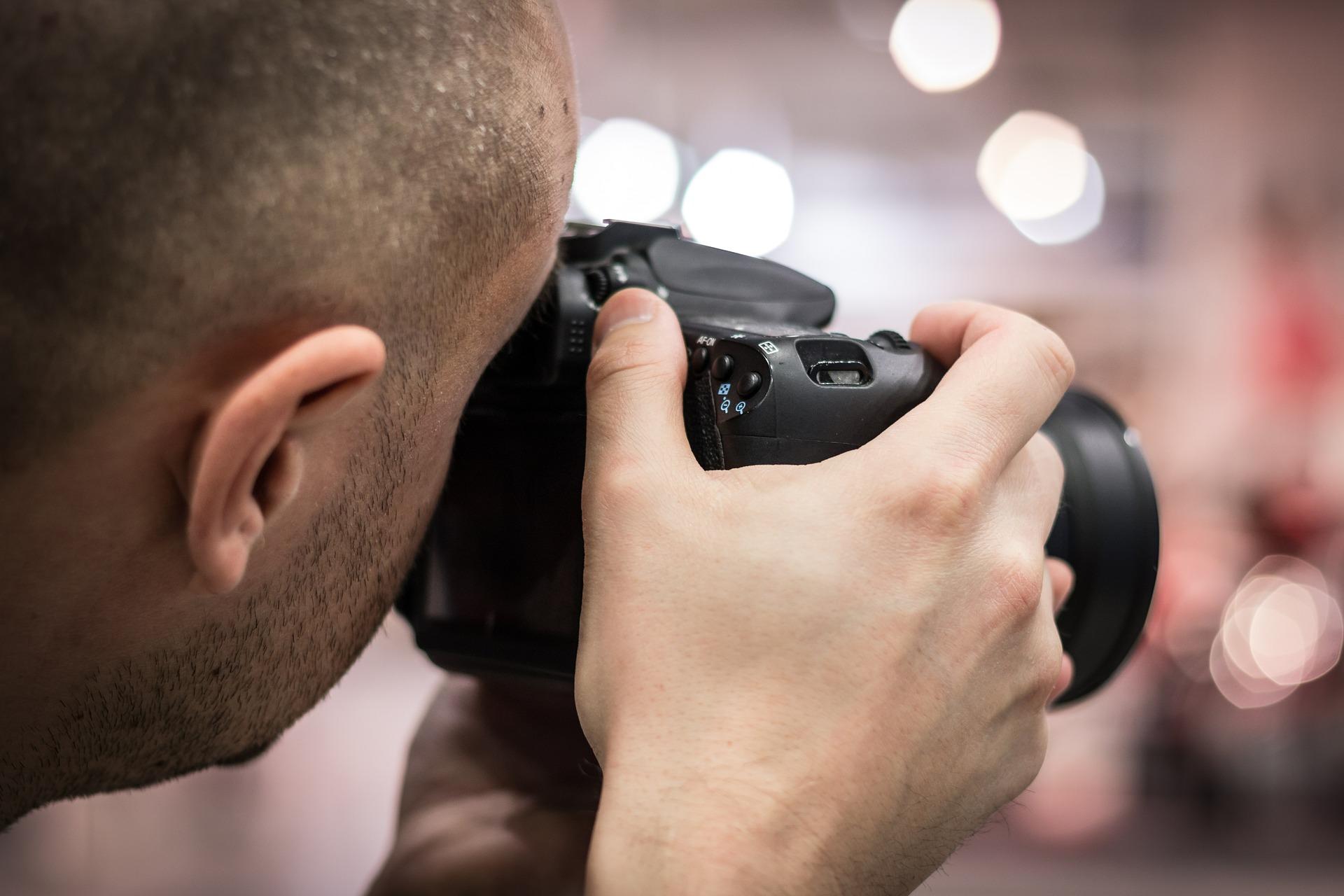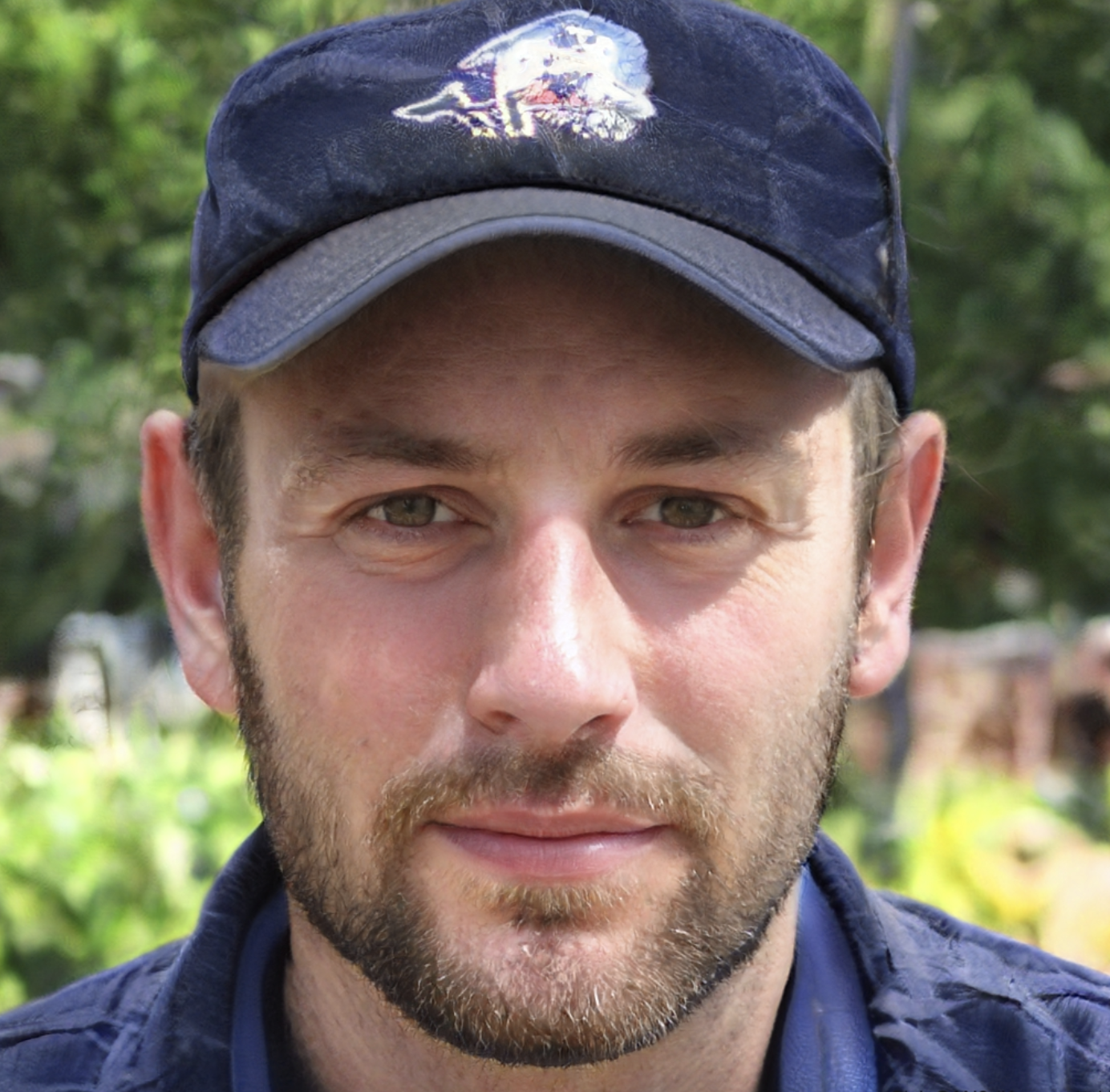Whether they entered the public eye as pieces of photojournalism, fashion photography, landscape photography, portraiture, documentary photography of historical events or art photography, the most famous and iconic photographs in the world come from a variety of genres and eras. Check out 25 of the most famous pictures in history that sparked conversation throughout the world!
| Title | Photographer | Date | Location |
|---|---|---|---|
| Le Baiser de l’Hôtel de Ville | Robert Doisneau | 1950 | Paris, France |
| The Vulture and the Little Girl | Kevin Carter | 1993 | South Sudan |
| Afghan Girl | Steve McCurry | June 1984 | Nasir Bagh refugee camp, Pakistan |
| Tank Man | Jeff Widener | 1989 | Beijing, China (Tiananmen Square) |
| Heart of Voh | Yann Arthus-Bertrand | 1990 | Voh, New Caledonia |
| V-J Day in Times Square | Alfred Eisenstaedt | August 14, 1945 | New York City, USA |
| The Terror of War (Napalm Girl) | Nick Ut | 1972 | Trảng Bàng, Vietnam |
| The Agony of Omayra Sánchez | Frank Fournier | 1985 | Armero, Colombia |
| Woman Resists Eviction | Luiz Vasconcelos | 2002 (approx.) | Manaus, Brazil |
| Saigon Execution | Eddie Adams | February 1, 1968 | Saigon, South Vietnam |
| The Death of Aylan | Nilüfer Demir | September 2, 2015 | Bodrum, Turkey |
| Guerrillero Heroico | Alberto Korda | March 5, 1960 | Havana, Cuba |
| The Falling Man | Richard Drew | September 11, 2001 | New York City, USA |
| Bliss | Chuck O’Rear | January 1995 | Napa Valley, California, USA |
| The Burning Monk | Malcolm Browne | June 11, 1963 | Saigon, South Vietnam |

1. Le Baiser de l’Hôtel de ville by Robert Doisneau
Published in Life magazine in 1950, Doisneau’s photograph, "Le Baiser de l’Hôtel de ville" (or "The Kiss at City Hall" in English) is regarded as one of the most romantic pictures ever taken. This black and white photograph has also become a symbol of the humanist photography movement.
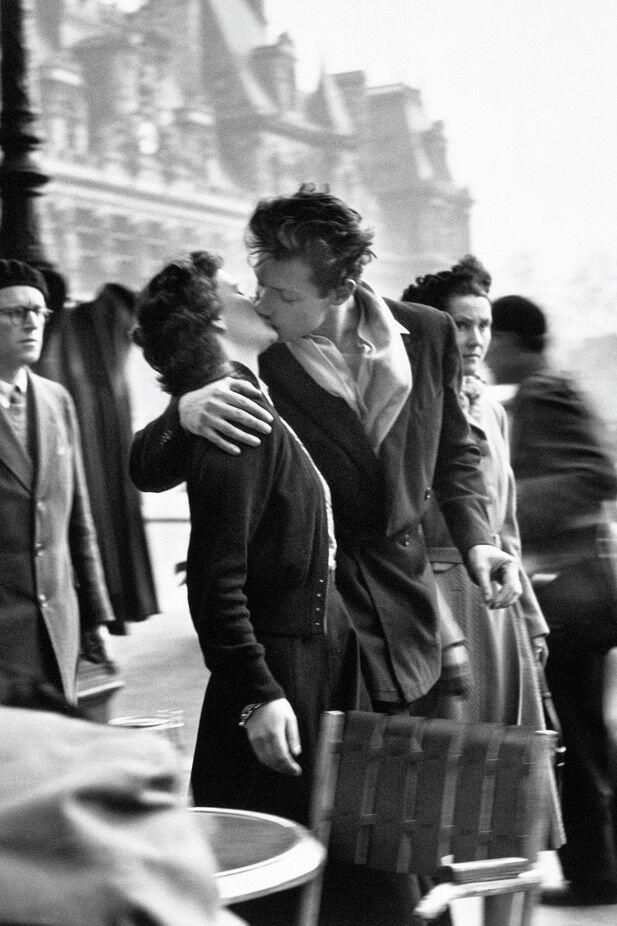
This movement was driven by Robert Doisneau, who strived to capture the essence of humanity in the years following the Second World War. As France was in a state of disrepair following the war, a large amount of Doisneau’s work depicts citizens of Paris in their everyday lives.
This included school pupils and couples as well as homeless people. Photographing the people of Paris in this way gave Doisneau a means of creating a portrait of French society at that time. What do you think about this famous photography?
2. The Vulture and the Little Girl by Kevin Carter
This photograph has been viewed controversially for a long time. Taken in 1993 by young photographer Kevin Carter, the moment depicts the consequences of famine in South Sudan. Kevin Carter sought to bear witness to the difficulties faced by those affected and provoke a reaction on an international scale by capturing the scene of a young, starving girl curled up on the ground.

Carter won the Pulitzer Prize for this photograph; however, he was accused of having not aided this situation and ended his own life a few months later. It was later learnt that the young girl in the photograph had been found alive and well.
If you're into famous historical photos, why not check out our article on photography tips for all styles?
3. Afghan Girl by Steve McCurry
Taken in June 1984, the portrait of the young Afghan girl known as Sharbat Gula is one of the most recognizable in the world. At the time this photograph was taken, Sharbat Gula was twelve years old, living as a refugee in Pakistan during the Soviet-Afghan War.
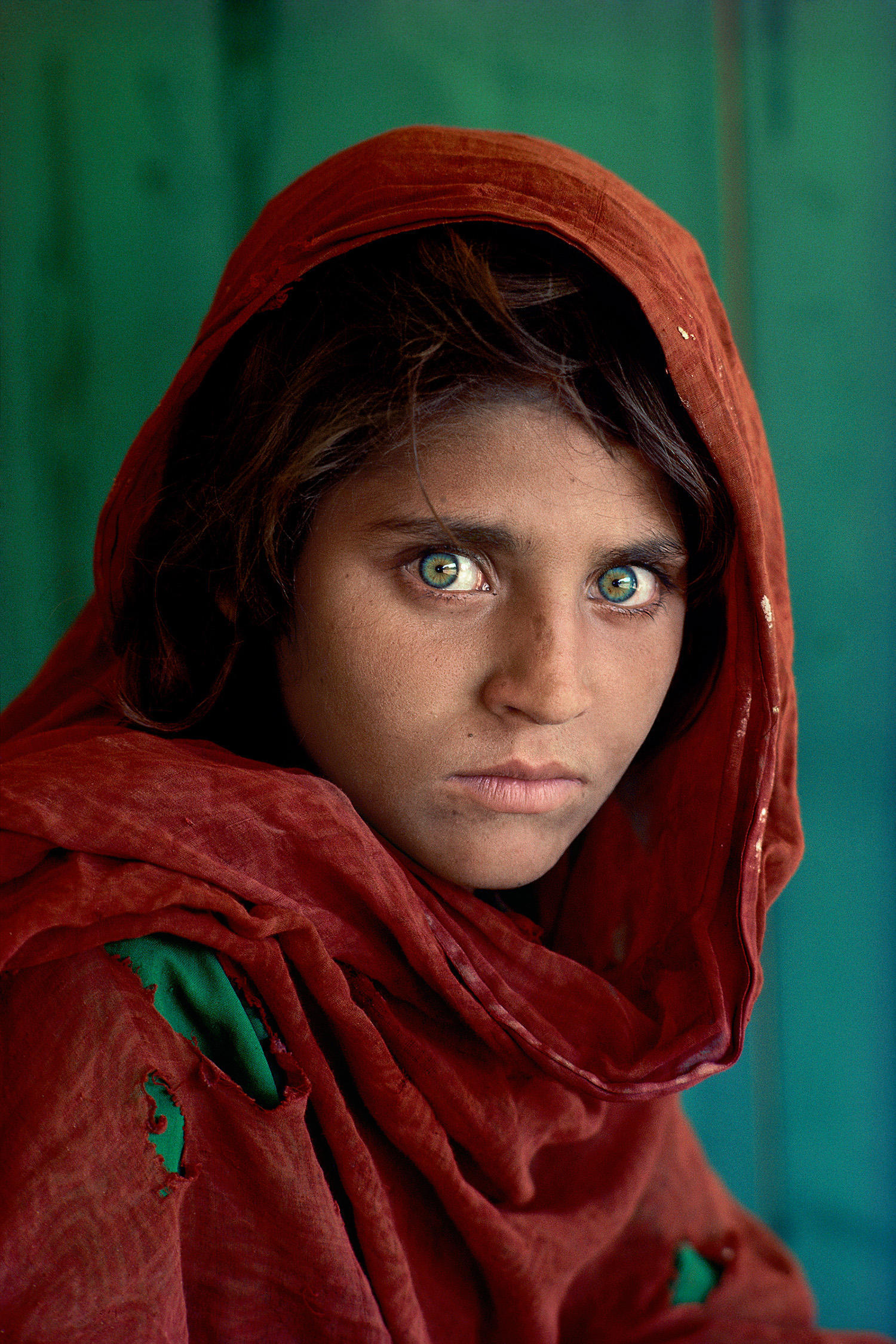
Her piercing green eyes, framed by a tattered red scarf, became the defining feature of the portrait. Her gaze is intense, alert and filled with both fear and resilience. McCurry captured the image in a makeshift classroom at the Nasir Bagh refugee camp near Peshawar. Though taken as part of a larger photojournalism assignment, the image stands out as both a piece of travel photography and a powerful portrait. It conveyed the human cost of conflict to a global audience and became one of the most widely recognized covers in National Geographic history.
4. Tank Man by Jeff Widener
Tank Man, which was taken in 1989, is the symbol of one student’s rebellion against the suppression of the Chinese army. This photograph was taken at a demonstration against corruption.
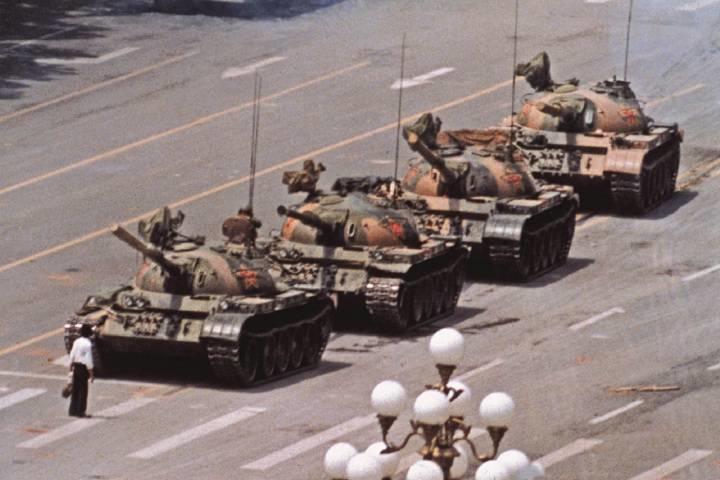
As the number of demonstrators continued to grow, the Chinese government made the decision to use the force of the army to restore order. The driver of the tank refused to keep moving forward, contrary to the orders of his superiors.
5. Heart of Voh by Yann Arthus Bertrand
The Heart of Voh (or Cœur de Voh, as it is called in French) is one of the world’s most famous pictures in history from the not-so-famous Yann Arthus Bertrand. Taken in 1990, the photograph represents the mangrove, a forest between land and water in New Caledonia. This type of vegetation covers over 75% of tropical land, representing 15 million hectares around the world. When taking this photo, Bertrand, as a keen landscape photographer, hoped to alert people to the environmental issues in the area.

Search for photography classes near me on Superprof!
6. V-J Day in Times Square by Alfred Eisenstaedt
It was at the end of the Second World War that photographer Alfred Eisenstaedt captured this moment between an American sailor and a nurse in Times Square.

This famous photography, published in Life Magazine, was taken on August 14, 1945, the day Japan surrendered to the Allies. Crowds filled Times Square to mark the end of the war, cheering, waving flags and embracing strangers in the streets. Many people later claimed to be the couple seen kissing in the image.
The woman was eventually identified as Greta Friedman, a dental assistant who said the kiss was not planned but spontaneous. The sailor was later confirmed to be George Mendonsa, home on leave after serving in the Pacific.
Are you looking for a still photography class?
7. The Terror of War by Nick Ut
The Vietnam war, which took place from 1955 to 1975, was incredibly controversial. People campaigned for the war and the massacres (represented by this photograph) that came with it to be brought to an end.
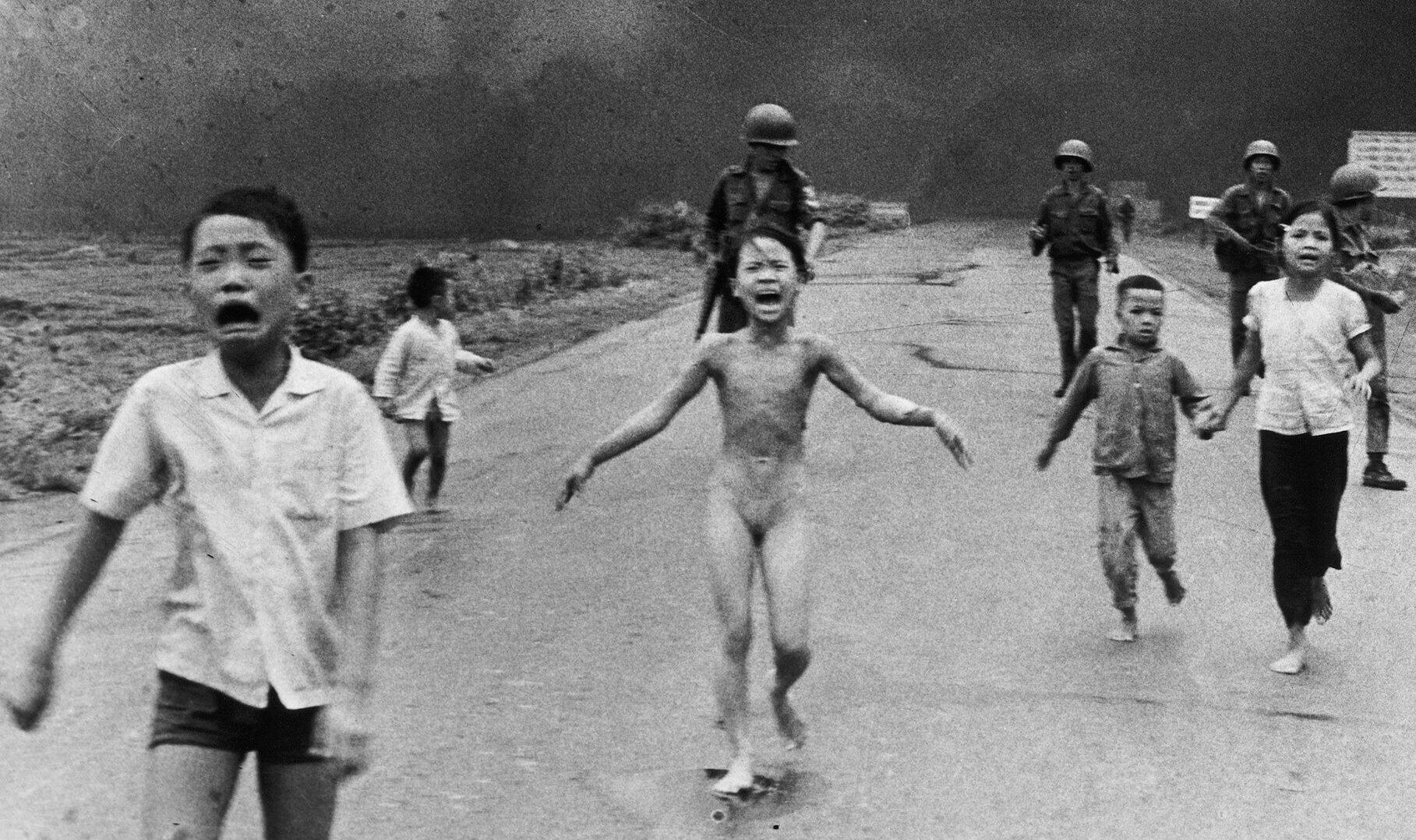
Phan Thi Kim Phuc, or the Napalm Girl as she is known, had to endure 17 skin grafts following the incident depicted in the picture.
8. The Agony of Omayra Sànchez by Frank Fournier
The story behind this photograph is nothing but tragic. The piece depicts a young Colombian girl trapped in the debris of her home following the volcanic eruption disaster of Nevado del Ruiz in 1985. Emergency services were unable to rescue Omayra in time as she was stuck beneath mud and debris. The 13-year-old girl eventually passed away, still trapped.

I wanted people to know who she was.
Frank Fournier
9. Woman Resists Eviction in Manaus by Luiz Vasconcelos
Some believe Brazil to be the land of greed. Vasconcelos’ photograph shows the woman resisting the Brazilian forces, who had come to claim land for the state. What makes this photograph even more important is its publication despite the treatment of journalists by the Brazilian government.
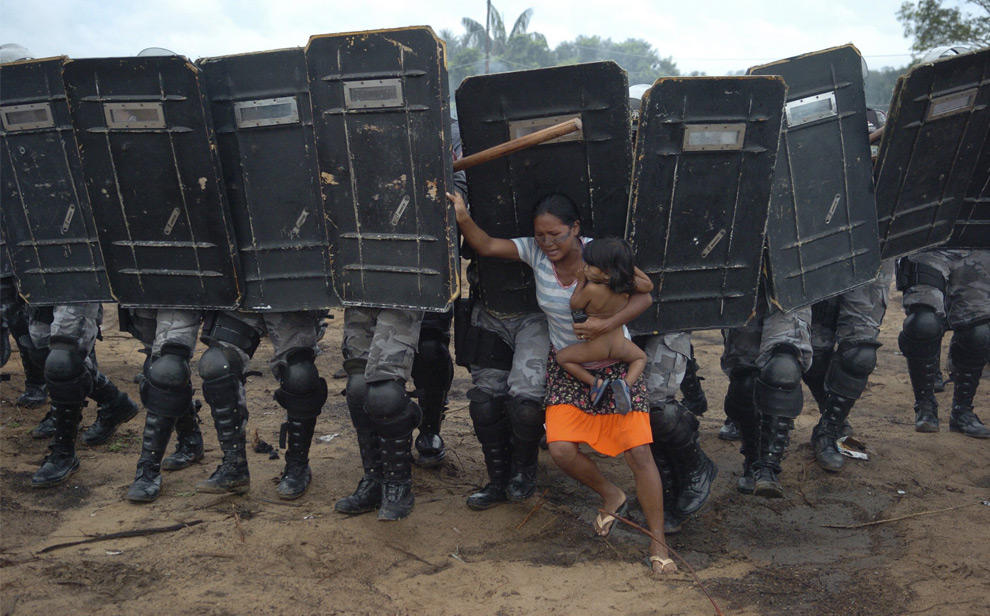
10. Saigon Execution by Eddie Adams
At the height of the Vietnam war, photographer Eddie Adams followed the Vietnamese army over the course of a few days. He was present for the execution of a communist prisoner who thought he was only going to be subject to interrogation. After winning the Pulitzer award, Adams said:
The general killed the Vietcong; I killed the general with my camera.
Eddie Adams

11. The Death of Aylan by Nilüfer Demir
The image of an infant refugee found dead on a Turkish beach stopped the world’s news in September 2015. Three-year-old Aylan Kurdi had drowned while trying to reach Greece with his family. His body, lying face down near the shoreline, became a stark symbol of the refugee crisis. The photograph, taken by Nilüfer Demir, was published internationally and sparked urgent discussions on migration policies, border control and the treatment of displaced families fleeing conflict zones.
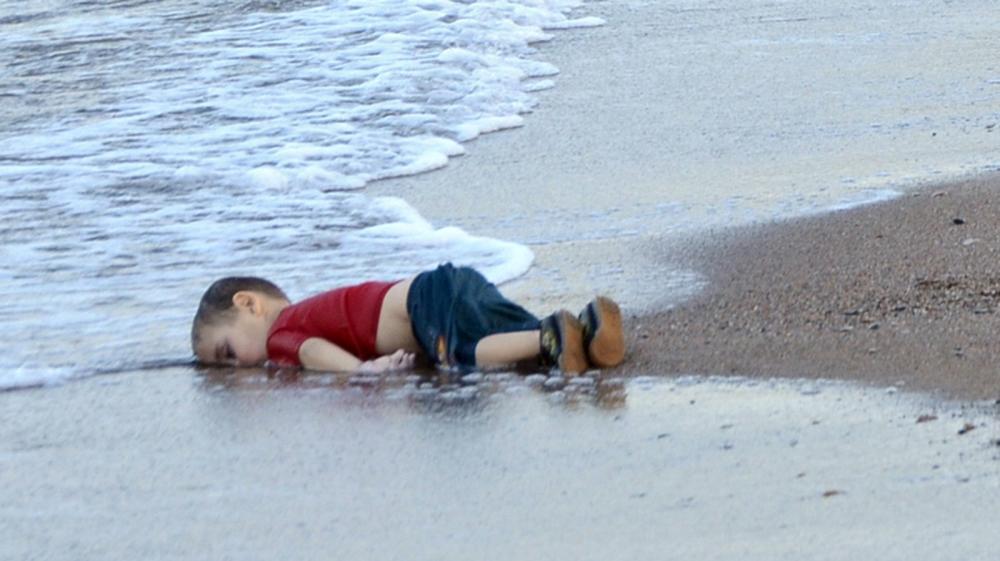
By photographing them, I simply wanted to capture the trauma experienced by these people.
Nilüfer Demir
12. Guerrillero Heroico by Alberto Korda
Alberto Korda’s portrait of Che Guevara is everywhere. As a well-known symbol of Marxism, this photograph is printed on on tshirts, bags and stickers. This photo is part of the most famous photographs of all time!
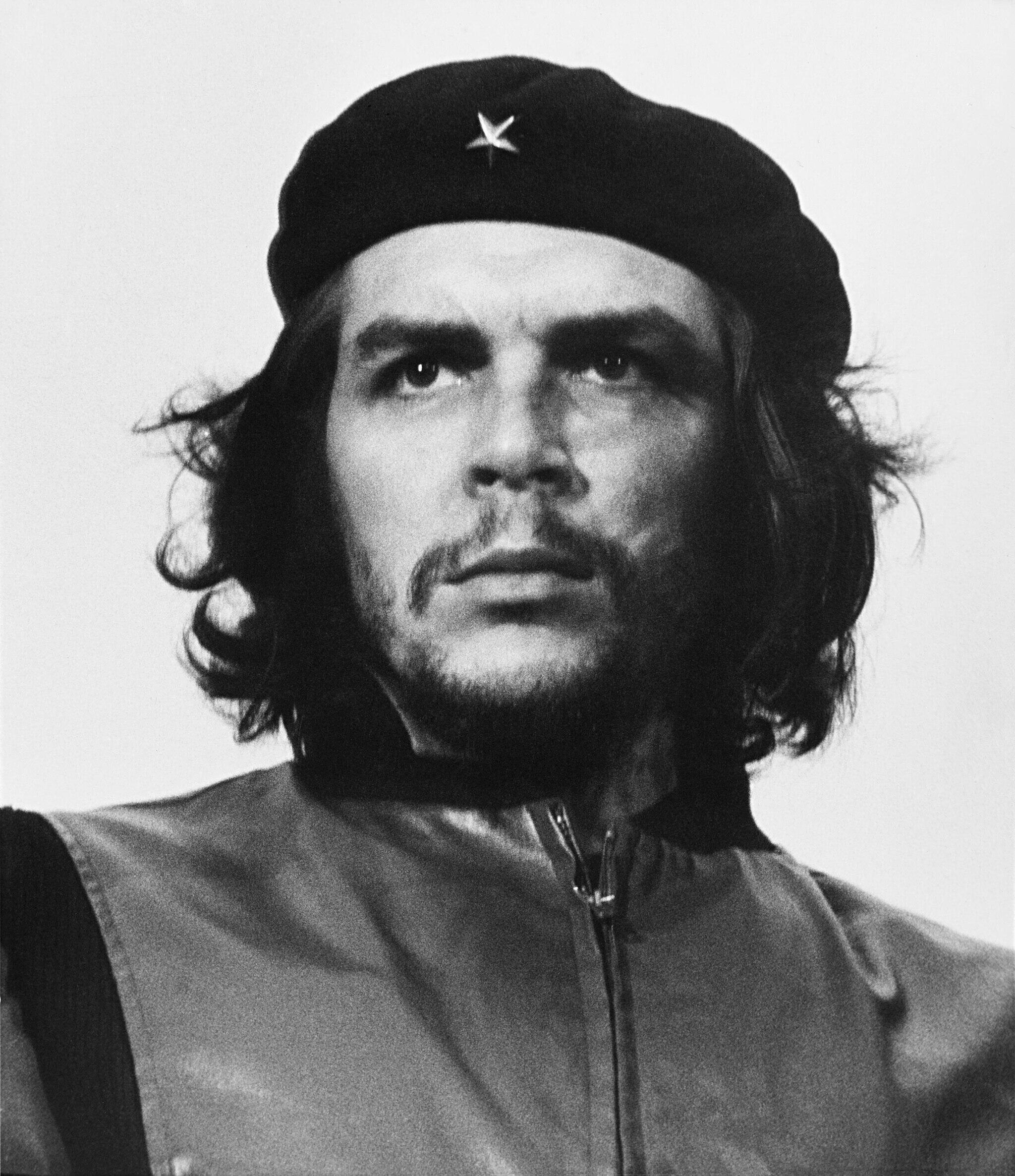
But what is the story behind this portrait? The photograph was taken in 1960 as a memorial for the victims of the explosion at La Coubre, a cargo ship that exploded in Havana harbor, killing dozens. Che Guevara was present at the funeral when photographer Alberto Korda captured the image. Guerrillero Heroico was later named the most famous photograph in the world by the Maryland Institute of Art. It has since appeared widely on posters, clothing and banners.

13. The Falling Man by Richard Drew
Taken during the horrors of the attack on the World Trade Center on 11th September 2001, the famous photograph of the falling man shows a man jumping from a high floor of one of the twin towers. Several people threw themselves into the air to avoid inhaling the toxic fumes as the buildings burnt.
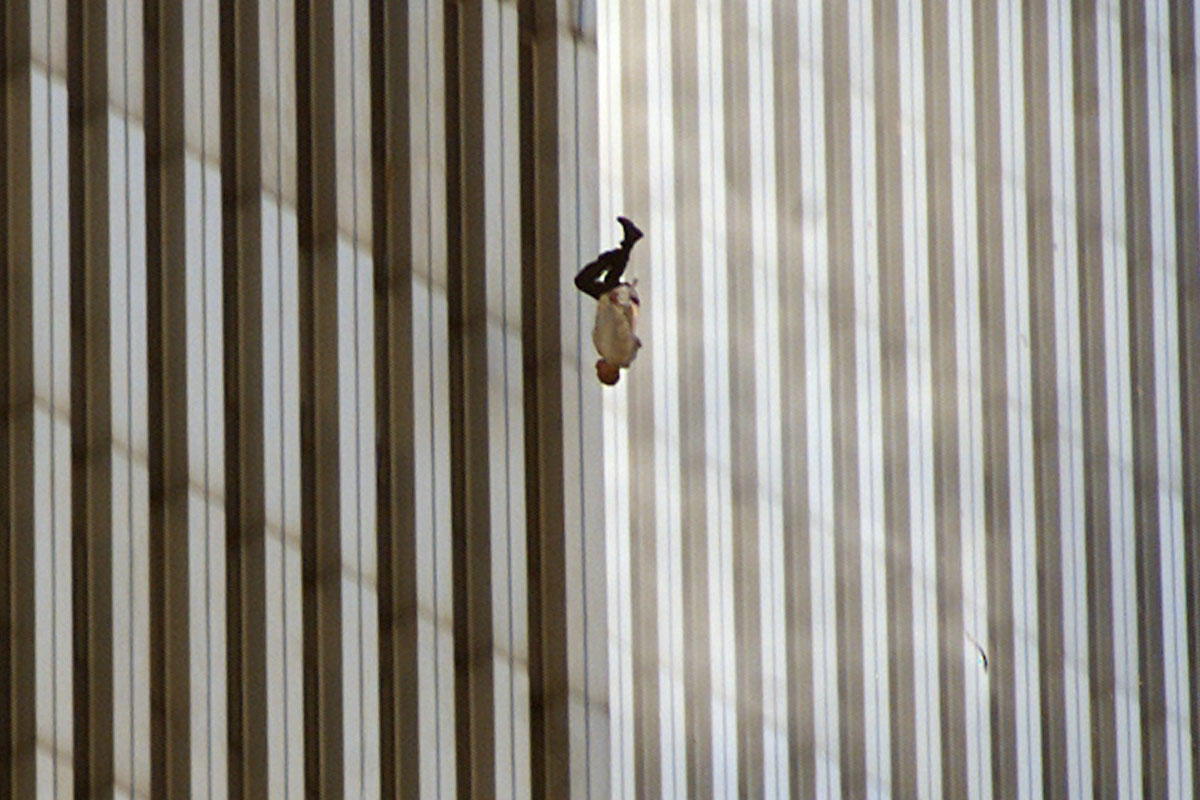
What are your favorite most famous photos of all time?
14. Bliss by Chuck O’Rear
In January 1995, Chuck O’Rear, a National Geographic photographer, took this photograph in Napa County in California. Bliss rose to fame as the default desktop background for Windows XP. Several of O’Rear’s other works have also been used as backgrounds.

15. The Burning Monk by Malcolm Browne
A Buddhist monk called Thich Quang Duc immolated himself on the streets of Saigon in protest of the treatment of Buddhist monks under president Ngo Dinh Diem’s regime. Malcolm Browne was the only Western journalist at the scene in 1963 and managed to capture a photograph which would mark history.

Click here if you're interested in the art of contemporary photography.
16. Migrant Mother by Dorothea Lange
This photograph shows Florence Owens Thompson, a mother of seven, during the Great Depression.
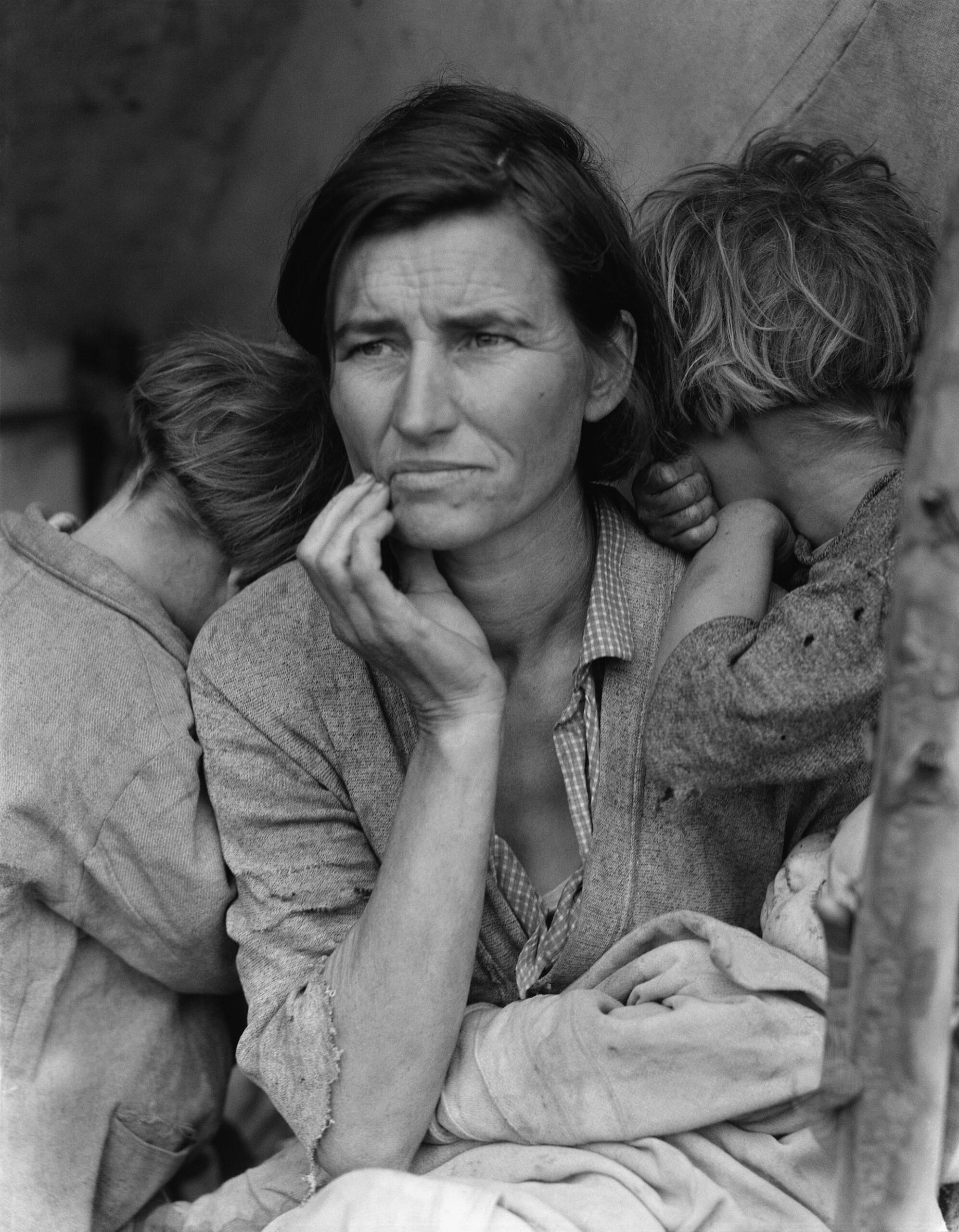
Lange took this image while working for the Farm Security Administration. It highlights rural poverty and government inaction, showing a worn face and tired eyes shaped by long days, poor wages and hard conditions.
The famous photography was published in newspapers and used to push for food aid to migrant camps. It’s now considered one of the most famous photos of all time, representing of economic hardship in 20th-century America.
17. Raising the Flag on Iwo Jima by Joe Rosenthal
This photo shows six U.S. Marines hoisting the American flag during the Battle of Iwo Jima in World War II. Taken on Mount Suribachi, it was reproduced in newspapers across the United States and became the basis for the Marine Corps War Memorial. It captures a moment of military action, teamwork and national symbolism.
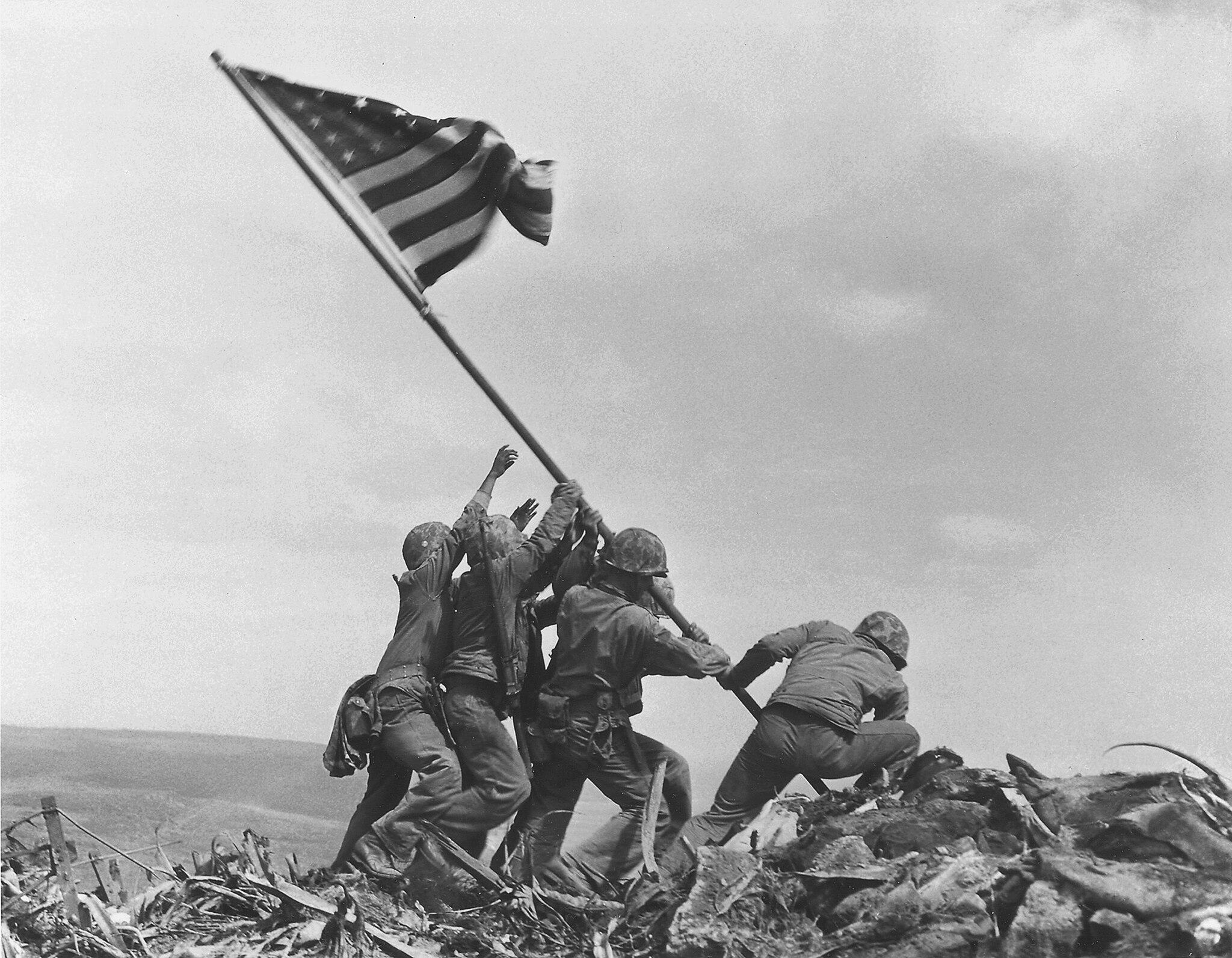
18. Earthrise by William Anders
Taken by astronaut William Anders during Apollo 8, this image shows Earth rising above the Moon’s horizon.
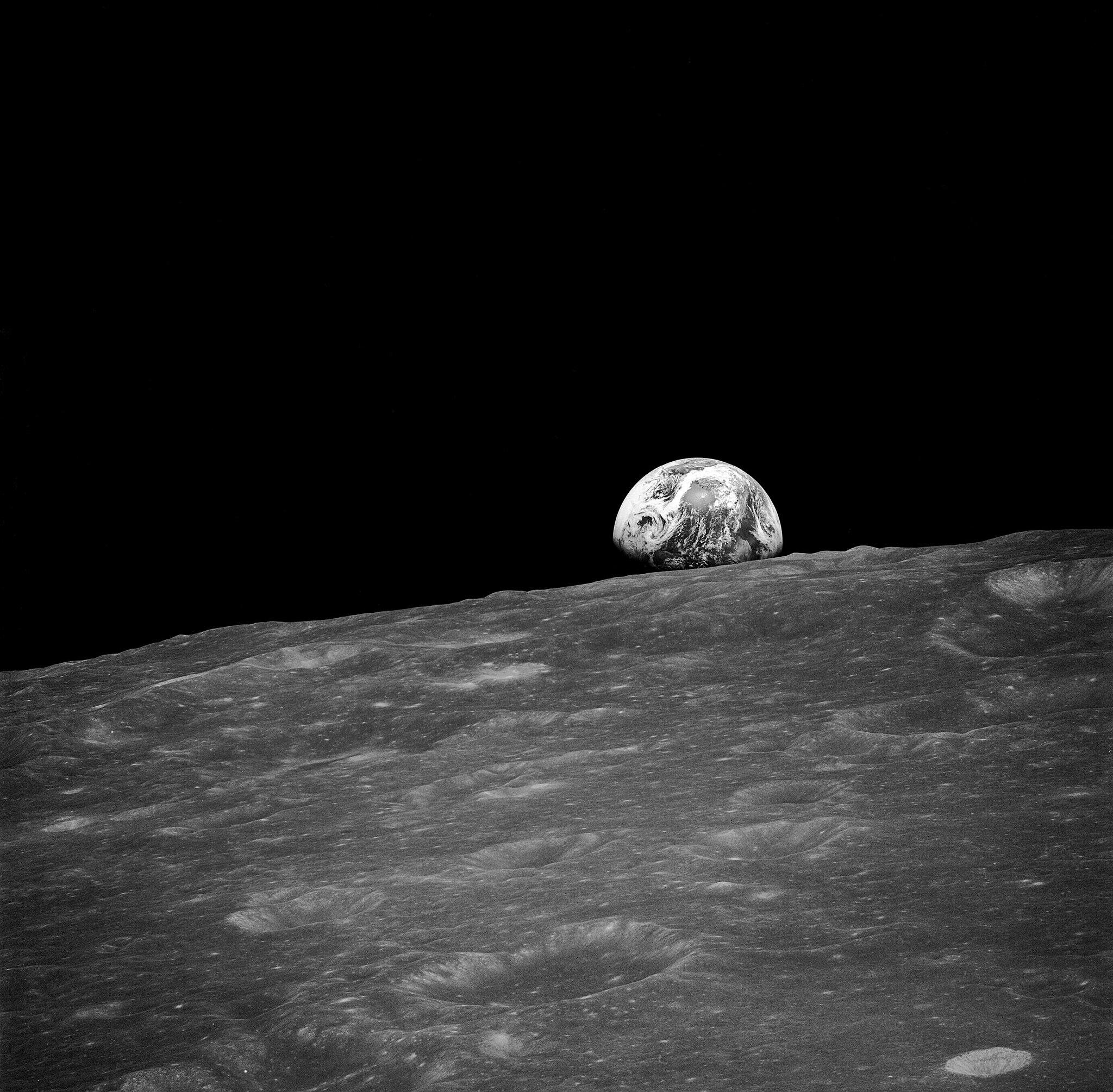
It was the first time humans saw Earth from space with such clarity, revealing its isolation, fragility and scale in the blackness of space.
The photograph influenced public interest in environmental issues and played a role in the founding of Earth Day in 1970.
It remains one of NASA’s most reprinted images and is often credited with shifting global attitudes toward planetary stewardship!
19. Lunch Atop a Skyscraper by Charles C. Ebbets
This image shows eleven construction workers sitting on a steel beam eating lunch without safety equipment. It was taken during the construction of 30 Rockefeller Plaza. Although the famous photo was staged for publicity, it still illustrates the risks workers faced during the building boom of the early 20th century. The workers remain unidentified.
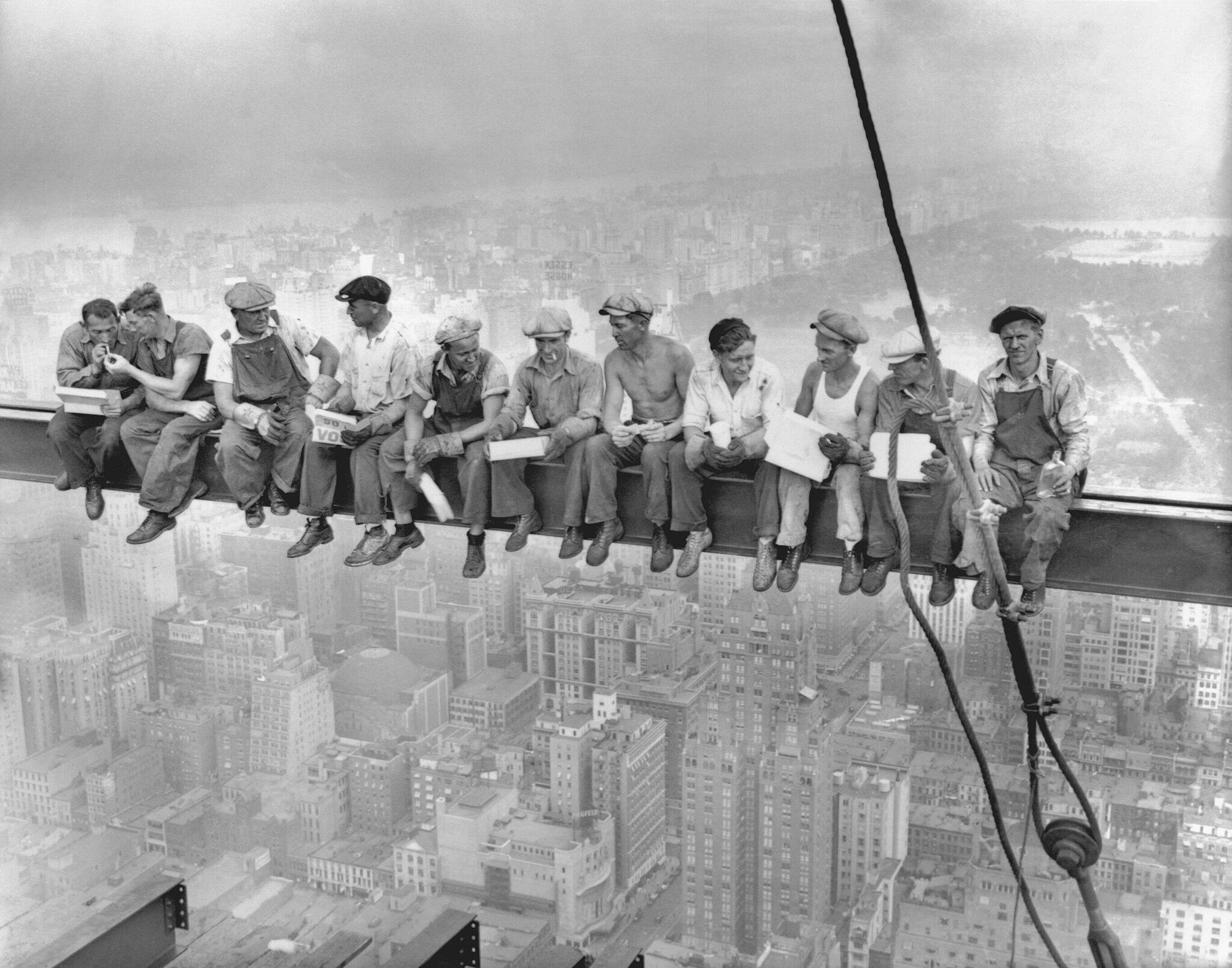
20. The Hindenburg Disaster by Sam Shere
As the German airship Hindenburg attempted to dock, it caught fire and crashed, killing 36 people. Sam Shere captured this image using a handheld camera. The photo was distributed globally and helped end the era of passenger airships. It shows the structure engulfed in flames, with a large plume of smoke rising above it.
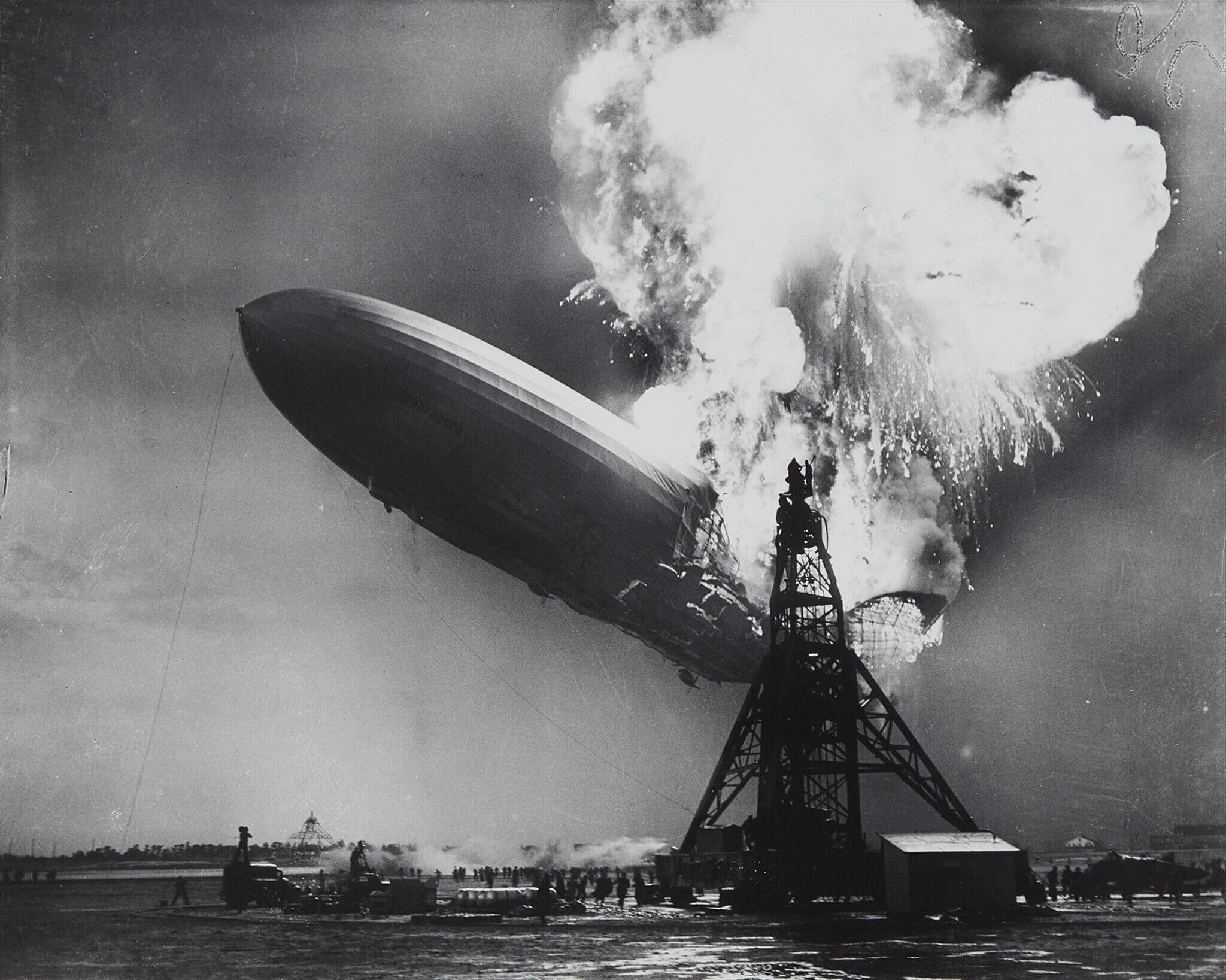
21. Behind the Gare Saint-Lazare by Henri Cartier-Bresson
This photograph shows a man leaping across a puddle just before his foot touches the water.
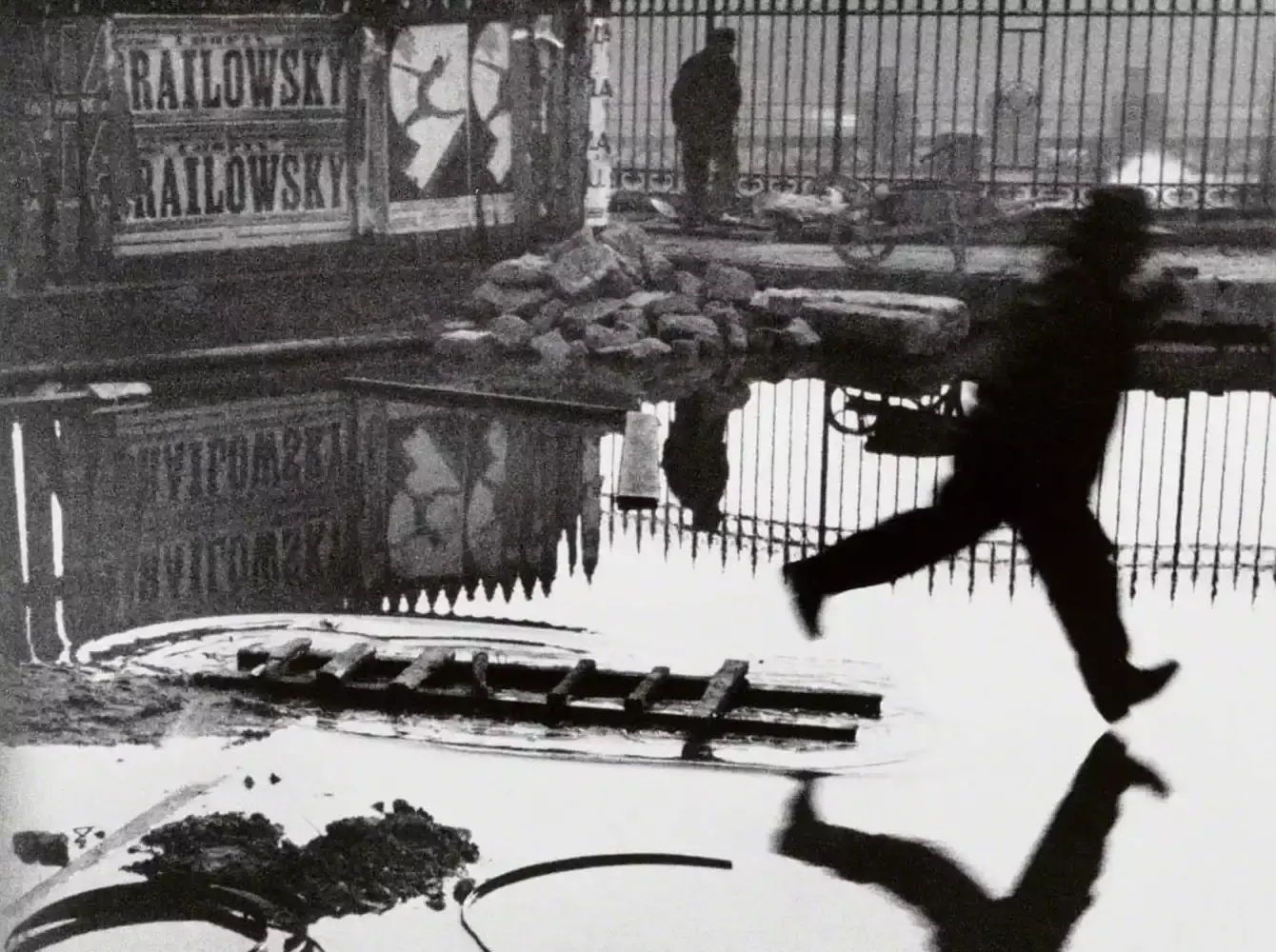
Taken behind the Saint-Lazare train station, it reflects Cartier-Bresson’s idea of capturing the right moment with minimal framing or retouching. The image uses balance and reflection, marking it as a classic example of early 35mm street photography.
22. View from the Window at Le Gras by Nicéphore Niépce
This is the first successful photograph ever taken. Niépce used a process called heliography and exposed a metal plate coated in bitumen for eight hours.
The photo shows rooftops and countryside from an upstairs window. It is a scientific artifact more than an artistic composition, but it marks the beginning of photography as a medium.
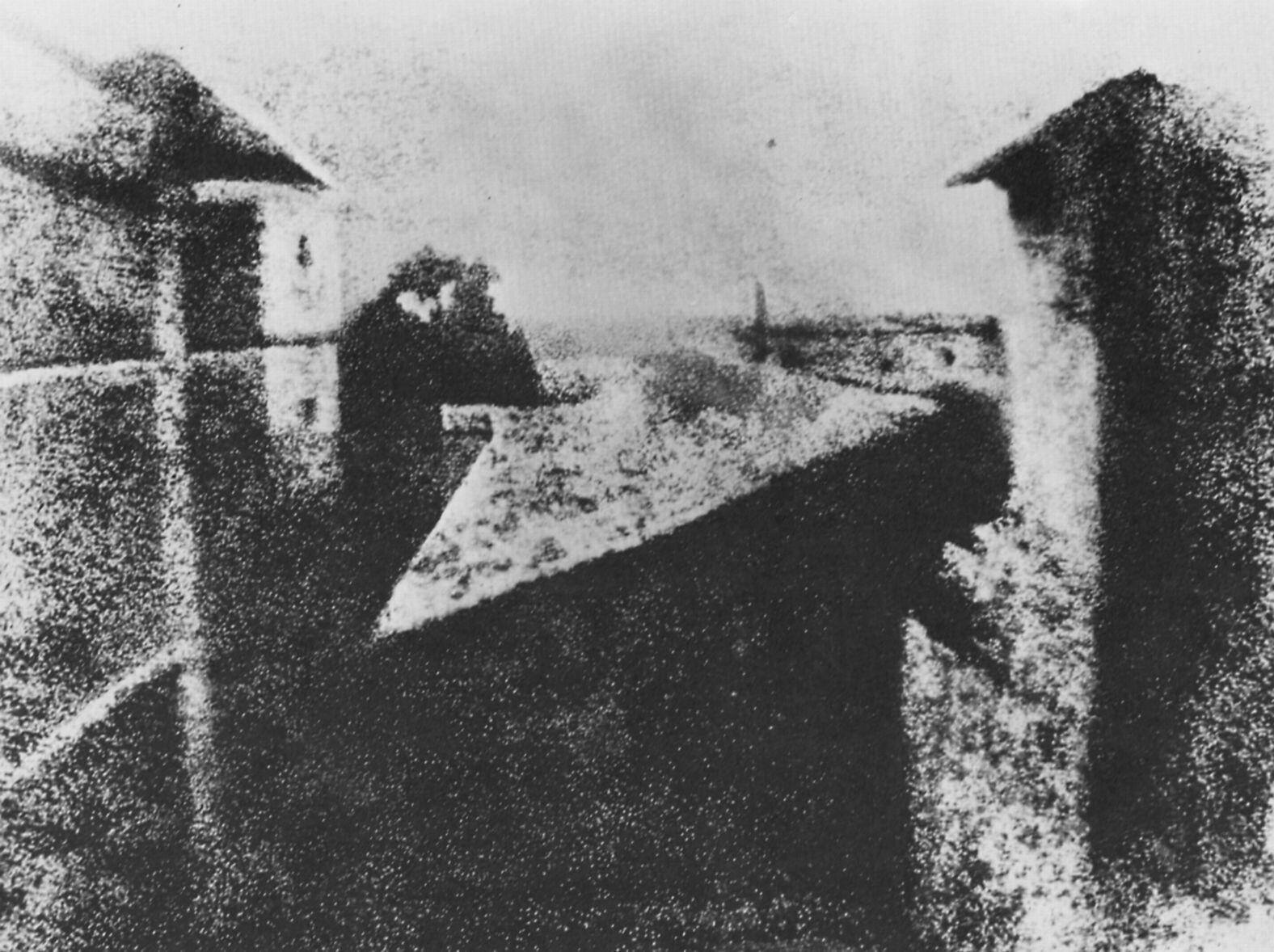
23. Black Power Salute by John Dominis
Tommie Smith and John Carlos stood on the Olympic podium and raised black-gloved fists during the U.S. national anthem in protest against racial injustice.
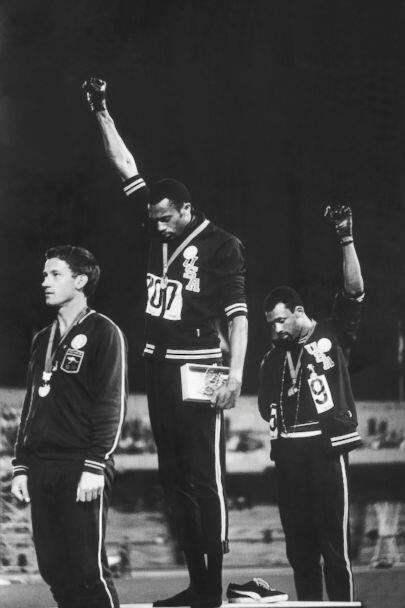
The photo led to both athletes being suspended and Norman was excluded from future Olympic selection. It is now used in discussions on civil rights and sports activism. Decades later, the protest is remembered as a defining moment in both athletic and political history, highlighting the personal cost of speaking out. In 2005, the San Jose State University alumni were honored with a statue. Norman was posthumously recognized by the Australian Parliament in 2012 for his solidarity. Part of the most famous photos, this image continues to be studied in classrooms and referenced in movements around the world.
24. D-Day Landing by Robert Capa
This blurry image was taken during the Allied landings on D-Day. Robert Capa shot several rolls of film under fire; most were destroyed during processing. The surviving frames capture the chaos of soldiers wading ashore. Despite the technical flaws, the photos became defining records of the invasion and were published in Life magazine.
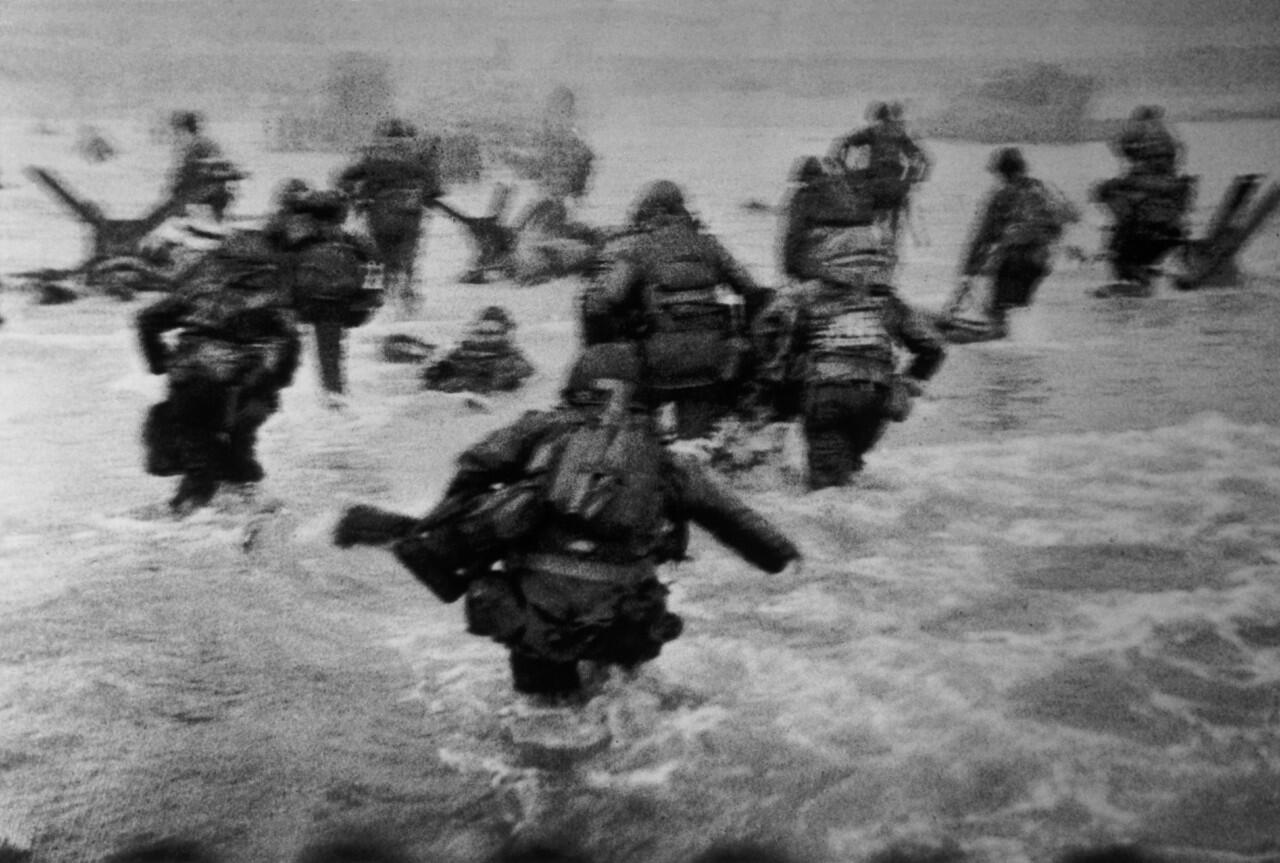
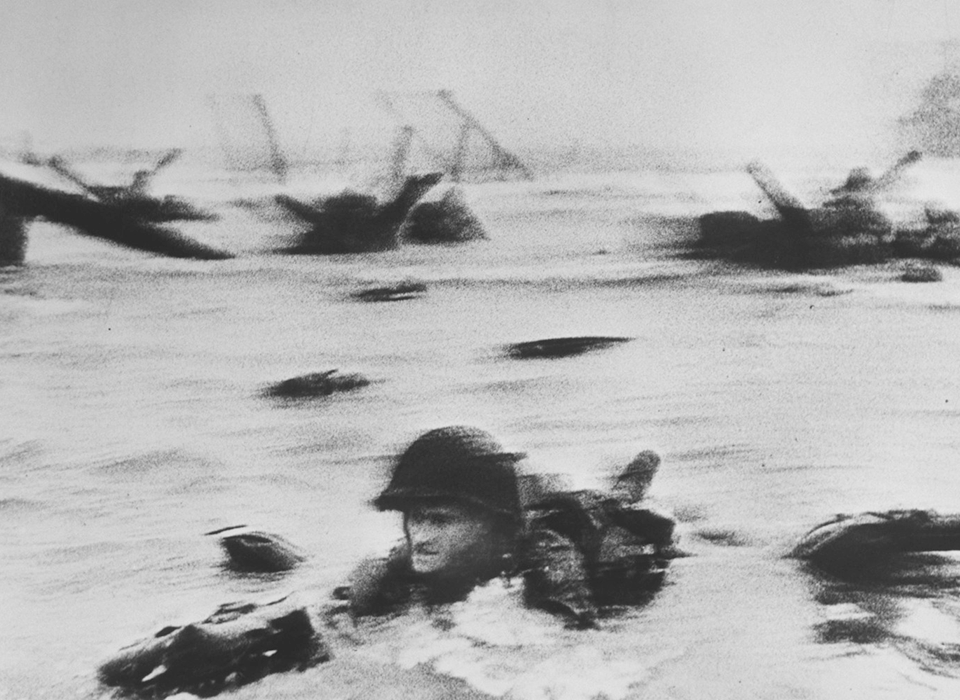
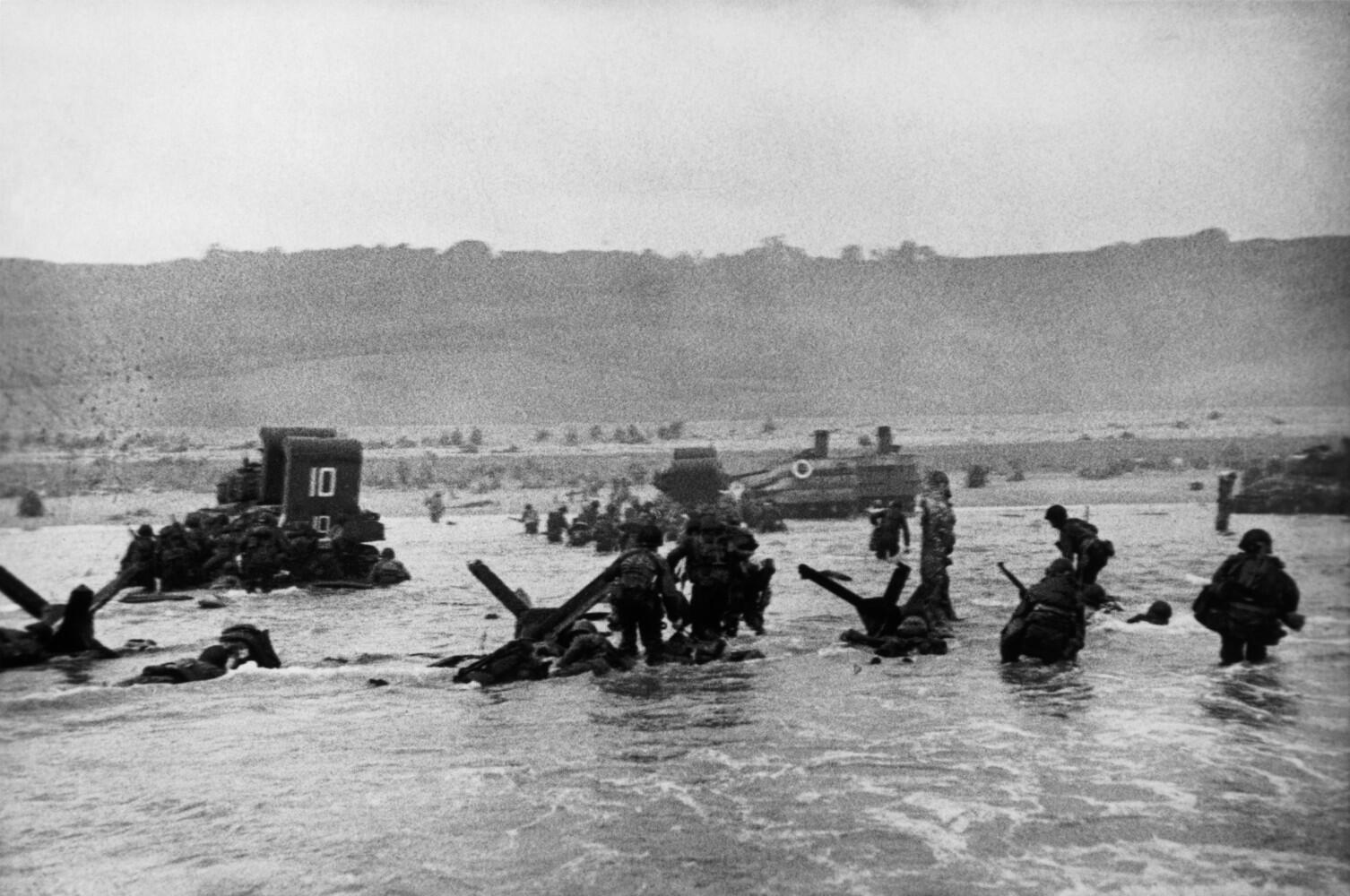
25. Selma March by James Karales
James Karales documented the 1965 Selma to Montgomery march, capturing a group of civil rights activists walking along a rural Alabama road under a cloudy sky.

The American flag carried in the wind stands out in the frame.
This photograph represents quiet determination, unity and the demand for equal voting rights.
Unlike images of confrontation, this scene shows organization and purpose, offering a broader view of the movement beyond moments of violence. Any famous photos you'd like to share? Write to us in the comments!
Résumer avec l'IA :

